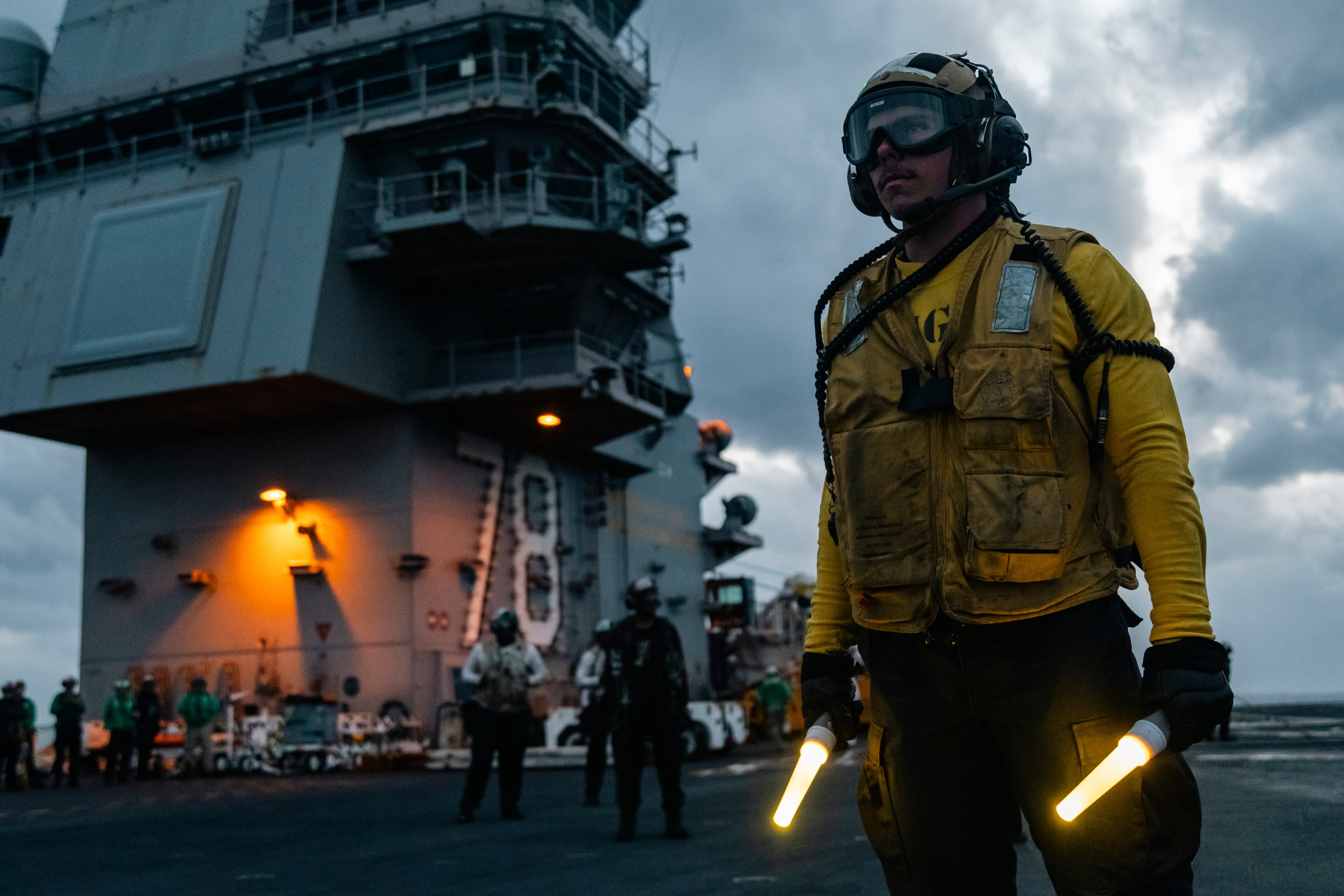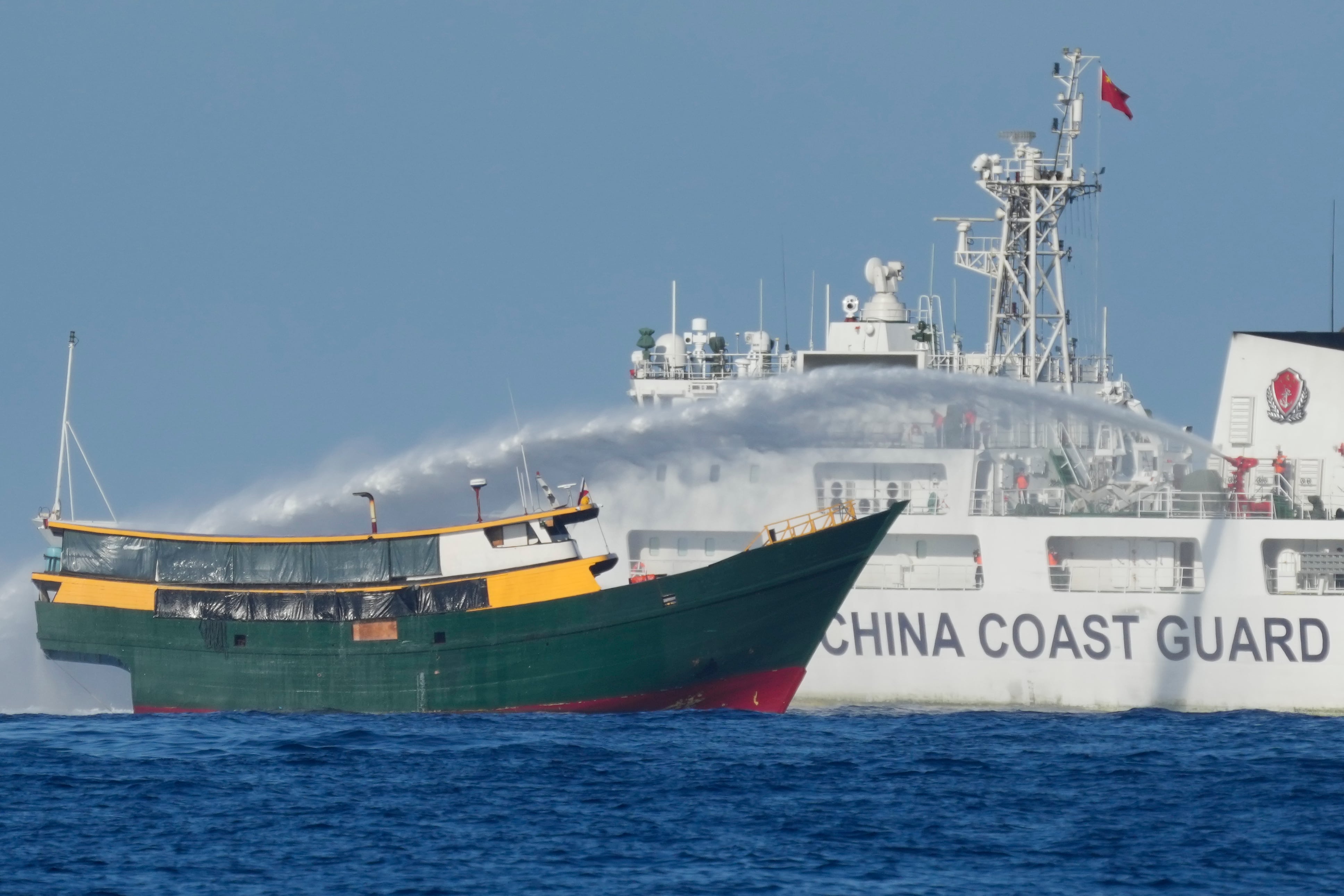Editor’s note: This op-ed was authored by a Department of Defense civilian employee who requested anonymity due to concerns about potential retaliation for expressing dissenting opinions from the Trump administration. Military Times granted anonymity for the author to express their views freely.
U.S. service members make considerable personal and professional sacrifices to maintain America’s advantage over its adversaries. Yet many have a blind spot for how the recent U.S. strikes against alleged drug-carrying boats may be setting a precedent that gives a “lawfare” advantage to those very adversaries.
As a Defense Department employee, I have seen this firsthand in colleagues. These actions not only create legal controversy that stands out from those of the war on terror era but also set the stage for China to use this precedent to take control of Taiwan in a fait accompli.
In the early days of President Donald Trump’s second term, the U.S. declared several Latin American cartels “terrorist organizations” for the purpose of sanctions. In early September, the U.S. began executing strikes against boats, mostly in the Caribbean, that the Trump administration has claimed are smuggling drugs.
As of this writing, the U.S. has disclosed conducting 13 strikes, killing at least 57 people.
Trump has defended the strikes by claiming the U.S. is targeting “narco-terrorists” who are smuggling a “deadly weapon poisoning Americans.”
One month into this military campaign, and after giving various garbled legal justifications, the U.S. declared it is in an armed conflict — a legal framework where an armed force can kill enemy combatants without trial — against unspecified cartels, citing self-defense.
The administration’s legal framework is nonsense, as has been well explained elsewhere; experts in the law of war have called the strikes patently illegal.
One aspect — designating the cartels as terrorists — “stretches the meaning of the term beyond its breaking point,” according to one scholar. Moreover, the circumstances simply fail to meet key criteria for an armed conflict: The cartels lack the command structure of an “organized armed group” that would make their members targetable based on their status, and the cartels have not engaged in intense or protracted armed violence against the U.S.
Even if the U.S. could reasonably argue an armed conflict was underway, there is no domestic law authority (such as congressional authorization) for the president to order these strikes.
As Georgetown law professor Marty Lederman points out, “To be sure, Article II [of the U.S. Constitution] empowers a president to repel an actual attack against the United States. … But that’s a far cry from authorizing an ongoing series of status-based strikes by the United States against a non-State armed group.”
There is potentially an even graver development appearing on the horizon, meanwhile, as the U.S. has been moving naval forces into the region and Trump has alluded to an intention to begin striking land targets.

Beginning in August, the U.S. deployed several warships to the region and F-35 fighter jets to Puerto Rico. In recent days, Defense Secretary Pete Hegseth ordered the aircraft carrier USS Gerald R. Ford to the region.
If the U.S. were to begin striking land targets in Latin American countries, it would be a flagrant violation of those countries’ sovereignty and would add yet another dimension of illegality to U.S. actions.
Objections to the Trump administration’s actions have come from Democrats and Republicans in Congress, a group of experts appointed by the U.N. Human Rights Council, former military lawyers and, reportedly, lawyers currently serving in DOD.
But isn’t dissent about U.S. military operations normal?
For service members who have spent most of their careers in the GWOT era, controversy over U.S. military action and legal justifications may seem par for the course.
Indeed, legal controversies dogged the U.S. during the war on terror, from the Bush administration’s decision to go to war in Iraq to the Obama administration’s use of drone strikes.
Some of these controversies have receded over time and firmly established precedents have emerged, such as the reliance by the U.S. and other militaries on the use of drone strikes. Others remain subject to critical examination — for example, the defense bill recently passed by the House of Representatives would repeal one of the authorizations for the use of military force in the Middle East that was, in many cases, used to authorize operations well beyond the original scope of the authority.
But the U.S. strikes against the alleged drug boats are problematic in crucial ways that GWOT activities were not.
In addition to the fact that the cartels are not engaged in intense or protracted armed violence against the U.S., the Trump administration has reportedly not presented compelling evidence to Congress that the targeted boats were smuggling fentanyl into the U.S.
Another key difference is that the U.S. had limited options at its disposal when it came to preventing attacks by terrorist groups such as al-Qaida. This is not the situation we are in today. The president has numerous tools at his disposal today to reduce the harm that fentanyl and other illegal drugs are having on Americans — many of which would likely be more effective than striking smuggling boats in the Caribbean. These include:
- Focusing and well-resourcing the efforts of the agencies traditionally tasked with interdicting drug smuggling — the Coast Guard and the Department of Homeland Security — on the most common routes of entry for illicit drugs to the U.S. This would mean directing a focus on the U.S.-Mexico border and Pacific coast, where the vast majority of illegal drugs enter the U.S., and better resourcing drug detection technologies at legal ports of entry, where most fentanyl seizures occur.
- Increasing partnerships between federal agencies and local police.
- Reprioritizing drug enforcement for federal investigations and prosecution.
- Increasing Americans’ access to addiction services.
How these actions are setting a precedent that could help China achieve dominance
Treating international drug smuggling as an armed conflict and drug traffickers as combatants has implications far beyond the legal realm. U.S. adversaries could use this precedent to gain advantage on the global stage.
For example, this precedent could be used by China to effectively take control of Taiwan. The U.S. has long been committed to the independence of Taiwan, as Hegseth reiterated earlier this year, stating, “America is committed to sustaining robust, ready and credible deterrence in the Indo-Pacific, including across the Taiwan Strait.”

China claims the vast majority of the South China Sea, including exclusive rights to fishing, oil and natural gas in those areas, and attempts to restrict other countries’ use of the sea. Although the U.N. Convention on the Law of the Sea has ruled against China, China regularly gets into confrontations with fishing and support vessels from the region while trying to enforce these claims.
A central part of this campaign is China’s assertion that those regional fishing and support vessels are using the South China Sea illegally.
Tapping the precedent being set by the U.S. in Latin America, the Chinese government could significantly escalate its response to the presence of, for instance, Philippine fishing boats by launching strikes against them using military aircraft. Building on this, China might begin striking Taiwanese commercial vessels or warships that are conducting activities they claim are illegal in the sea.
China could cite a continued pattern of so-called illegal behavior by Taiwanese vessels as an organized illegal campaign threatening Chinese sovereignty by the Taiwanese government.
Again, building on the U.S. precedent, China could declare an armed conflict against the government of Taiwan (a group that China, which claims Taiwan, regards as illegitimate) in the name of defending its sovereignty.
Once China has declared an armed conflict against the government of Taiwan, it could claim legitimacy in targeting Taiwan’s political leadership. China could then ensure Taiwanese leadership is replaced by supporters of Chinese policies — to include the policy of annexing Taiwan. China will have accomplished a fait accompli when it then swiftly implements that annexation.
Thus, it is crucial that U.S. service members understand that — with its strikes against alleged smugglers in Latin America — the U.S. is setting up a dangerous precedent that could, in the long run, hurt the U.S. and advantage adversaries.
This risk must inform DOD’s approaches, decisions and recommendations to military and civilian leadership.





